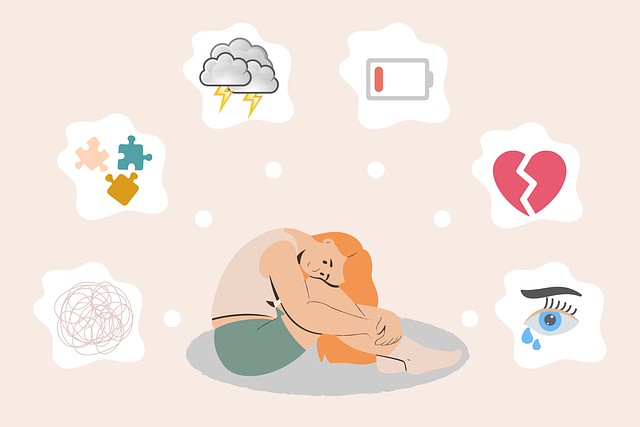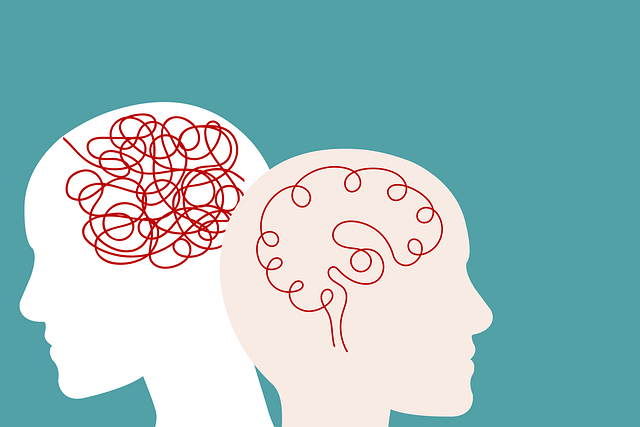Superior Panic Disorder and Anxiety Attacks (SPDAA) significantly impact daily life, but effective therapy combines evidence-based techniques like CBT, mindfulness exercises, and personalized coping strategies. Cultural sensitivity in mental healthcare ensures accessibility, while tailored conflict resolution and coping skills development promote long-term well-being. SPDAAT therapy involves identifying triggers, challenging negative thoughts, and implementing confidence-boosting strategies for holistic recovery.
Trauma support services are vital in addressing mental health challenges, particularly Superior Panic Disorder (SPD) and Anxiety Attacks. This article explores effective strategies for providing comprehensive care to those affected by these conditions. We delve into best practices for anxiety therapy and recovery, focusing on methods that empower individuals to manage their symptoms and rebuild their lives. Understanding SPD and implementing tailored support can significantly enhance well-being and foster resilience.
- Understanding Superior Panic Disorder and Anxiety Attacks
- Providing Effective Trauma Support Services
- Best Practices for Anxiety Therapy and Recovery
Understanding Superior Panic Disorder and Anxiety Attacks

Many individuals struggle with Superior Panic Disorder and Anxiety Attacks, which can significantly impact their daily lives. These intense episodes are characterized by sudden feelings of fear and discomfort, often accompanied by physical symptoms like rapid heartbeat, sweating, and shortness of breath. Understanding these attacks is a crucial step in managing them effectively. Through therapy, people can learn to identify the triggers and develop coping strategies tailored to their unique experiences.
Effective Superior Panic Disorder and Anxiety Attacks Therapy involves a combination of techniques such as mindfulness exercises, cognitive-behavioral therapy (CBT), and sometimes medication. Mental wellness journaling and guidance from therapists can be valuable tools for tracking progress and understanding patterns. Additionally, compassion cultivation practices, explored through various mental wellness podcast series productions, have shown promise in reducing anxiety and promoting overall mental wellness.
Providing Effective Trauma Support Services

Effective trauma support services are pivotal in helping individuals navigate and overcome the profound impacts of traumatic events. One of the key components is providing specialized therapy for conditions like Superior Panic Disorder and Anxiety Attacks, which often co-occur with traumatic stress. Therapists trained in evidence-based approaches such as cognitive behavioral therapy (CBT) can help clients identify and challenge unhelpful thought patterns, thus reducing anxiety symptoms and fostering resilience.
Cultural sensitivity in mental healthcare practice is equally crucial for delivering effective support. Understanding a client’s cultural background, beliefs, and values ensures that the therapeutic process remains meaningful and accessible. Incorporating conflict resolution techniques tailored to individual needs allows for healthy expression of emotions related to trauma. Additionally, focusing on coping skills development equips individuals with tools to manage stress and maintain mental well-being in the long term.
Best Practices for Anxiety Therapy and Recovery

Effective anxiety therapy and recovery for individuals suffering from Superior Panic Disorder and Anxiety Attacks involves a multi-faceted approach that combines evidence-based techniques with personalized care. One of the best practices is cognitive-behavioral therapy (CBT), which helps clients identify and challenge negative thought patterns contributing to their anxiety. By teaching mindfulness and relaxation techniques, CBT empowers individuals to manage symptoms during triggering situations, promoting better mental resilience.
Additionally, integrating confidence-boosting strategies into treatment plans can significantly aid in recovery. Techniques focusing on self-esteem improvement and burnout prevention further support clients in rebuilding their lives after traumatic experiences. Tailoring these practices to the individual ensures a holistic approach that addresses both the symptoms and underlying causes of anxiety, fostering long-term mental health and well-being.
Trauma support services play a pivotal role in helping individuals overcome Superior Panic Disorder and Anxiety Attacks. By implementing best practices, such as tailored therapy sessions and effective recovery strategies, we can significantly enhance the quality of care. Understanding specific conditions like Superior Panic Disorder is essential to provide targeted support that makes a real difference in people’s lives. With continued efforts and evidence-based approaches, we can revolutionize trauma support services, fostering resilience and improving mental health outcomes.














